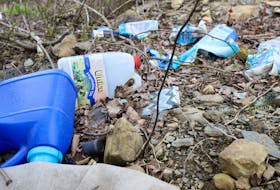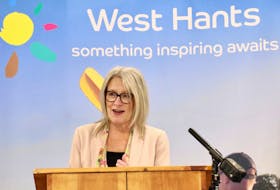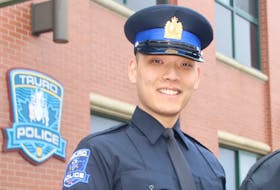
Decades later, he is a seasoned doctor who will receive the Nova Scotia College of Family Physicians’ Award of Excellence on Oct. 20, honouring his decades-long work in emergency medicine and serving marginalized communities.
“I’m greatly honoured to be receiving this award,” said Murray, who practises at Halifax’s Spryfield Clinic. “There are a number of people who have received it in the past. It’s a very prestigious group to be joining.”
Since graduating from Dalhousie’s medical school in 1992, Murray has worked in both family and emergency medicine, one of an increasingly rare breed of doctors with expertise in both fields.
Having worked in both Vancouver and Nova Scotia, he sees many patients suffering from addictions to alcohol and drugs, which has already put many doctors on the front lines of North America’s lethal opioid crisis.
Murray himself has dealt frequently with patients suffering from more ‘traditional’ addictions to heroin, cocaine or drinking at the Aberdeen Hospital’s emergency room.
The new wave of synthetic opioids includes fentanyl, a painkiller 100 times more powerful than morphine and W18, which is 1,000 times more powerful.
These substances are often found in other drugs such as illicit oxycodone pills and cocaine, sold by dealers with little if any knowledge about safe dosages or basic chemistry.
Nearly 2,500 Canadians died from opioid overdoses in 2016.
“These are increasingly potent medications and if the dose is slightly off, death can result,” warned Murray.
However, his work with marginalized groups aims to combat addiction and other illnesses worsened by poverty.
This includes an opioid management clinic to help addicts and a school clinic to help youth in a deprived area of Halifax.
One of Murray’s fellow doctors also started a refugee clinic to help recent arrivals who are often under-served, giving them referrals to Spryfield.
Murray said that people in poverty typically have the same health conditions that anyone can have, but poorer patients have more advanced illness as they cannot obtain a timely diagnosis and treatment plan.
This includes addiction-related illnesses such as alcoholism, which damages liver and brain function.
Another common problem is malnutrition, as poorer people often struggle to obtain healthy food.
Groups commonly affected by poverty are First Nations, people in low-paying jobs, newly arrived refugees and immigrants and those living with chronic mental or physical illnesses.
“Poverty is a huge issue that marginalizes a large percentage of our population,” said Murray.
But the biggest impact he makes is by training other doctors, teaching new residents about problems affecting under-served communities, before putting them to work at hospitals and health centres in Halifax, such as the IWK.
“My biggest contribution is being a teacher. I can make an impact by mentoring and showing medical students that you can look after these marginalized populations and do something that’s worthwhile,” said Murray.
When not practising medicine, Murray enjoys visiting his mother in Pictou, where she still owns a house by the beach.
He fondly recalled his youth there, where he attended Pictou Academy and people looked out for each other.
“Everyone cares about each other,” said Murray.








